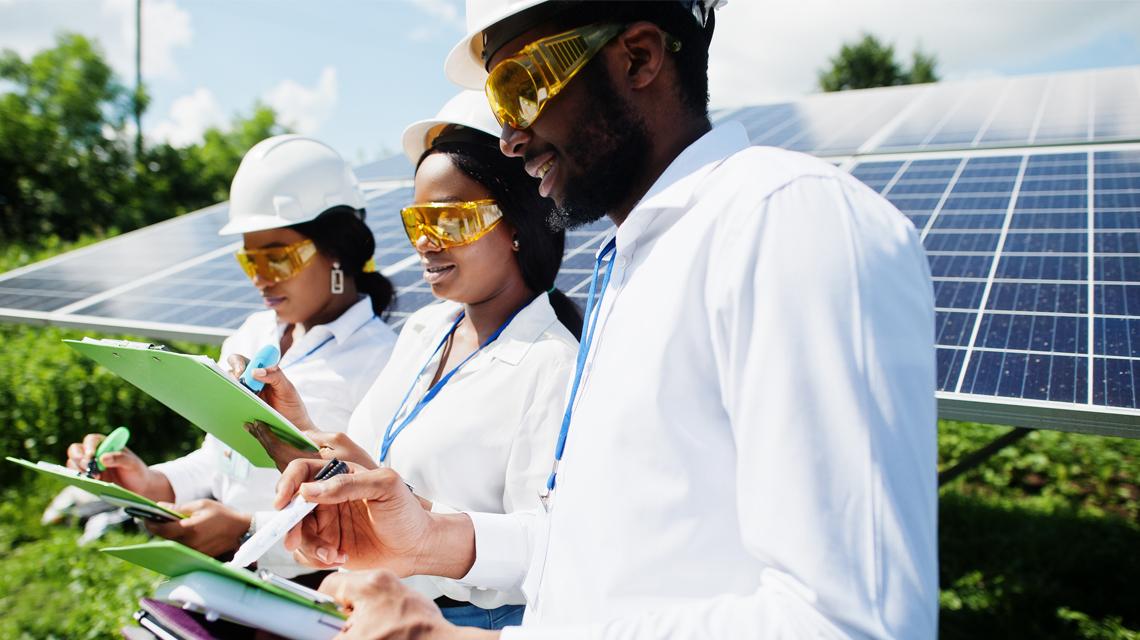"The impact of climate change will fall disproportionately upon developing countries and the poor persons within all countries. It will therefore exacerbate inequalities in health status and access to adequate food, clean water, and other resources."
— Rajendra K. Pachauri
The Climate Crisis has never felt so intimate for many of us. However, this intimacy is particularly daunting for those whose livelihoods rely on agriculture. The ever-rising global climate crisis and changing environmental trends such as land degradation, shift of climate zones, and desertification, to name a few, are adversely impacting agricultural production yields and further impacting food insecurity across Africa as we speak. More than ever before, smallholder farmers need to maximize their production capacity while simultaneously minimizing their post-harvest losses.
In today’s reality, relying on stable and plentiful yields in low-income areas has become difficult. A lack of yield stability coupled with a lack of preservation technologies such as cold storage facilities has resulted in income-generating hardships for smallholder farmers. To combat these challenges, the U.S. African Development Foundation (USADF) has partnered with Power Africa to increase farmers’ use of a readily available and accessible commodity: sunshine.
The Powering Africa summit in 2019 did not fail to highlight the correlation between connecting off-grid communities to energy and increased food security: “There’s a strong nexus between creating access to energy in rural areas and improving the agricultural opportunities which much of their local economies and food security rely on. Irrigation, post-harvesting, and cold storage of crops all require energy.” A food secure future necessitates stable and maximized production for farmers with the important addition of access to wider markets. We can no longer ignore the incremental benefits harnessing the sun’s energy can provide to off-grid, rural farmers.
Iguokakhen, nicknamed “The Pineapple Village,” is a small community located in Edo State in the Niger Delta in Nigeria, where, as the nickname implies, pineapple abounds. Pineapple has a strong market value and the potential to strengthen the community’s economic stature. However, farmers are often forced to sell their pineapples at a reduced price due to spoilage during transportation to major fruit markets. Smallholders can benefit from readily available resources, but without efficient market linkages or appropriate storage technologies, their economic advantage is stifled. Grant funding organizations are, however, fighting to change this.
USADF and Power Africa jointly funded Sosai Renewable Energies, a women-owned and managed enterprise that supports pineapple farmers in Iguokakhen. The enterprise’s goal is to increase upward economic mobility and food security through solar energy. The innovative project uses solar-powered dryers to dry and preserve pineapple, allaying post-harvest losses and maintaining the fruit’s value.
Over the last decade, Habiba Ali of Sosai has expanded her workforce by training her first customers—her friends and neighbors—and she now employs more than 150 saleswomen and 200 youths who install and maintain the equipment. Her products, which have expanded to include solar home kits, solar dryers, and mini-grids—which provide power to entire communities—have reached roughly 650,000 people across Nigeria.
In Turkana County Kenya, USADF awarded Nasanyanait Irrigation Project, a local cooperative of 70 members, a grant to fund a solar-powered irrigation system to increase the arable acreage of member farmers. The goal of the project is not only to increase the members’ earnings, but Nasanyanait hopes that harnessing the sun’s energy will ultimately create lasting food security and end malnutrition in the community.
In light of Feed the Future week 2021, USADF and its partners recognize the catalytic impact of harnessing solar energy. This impact is particularly recognized for smallholders across off-grid African communities that are dependent on agriculture for food production, and ultimately their food security. Rising to this challenge at the Foundation means equipping smallholders and grassroots community groups most affected by economic instability with the resources and tools necessary to lift themselves out of poverty and end their reliance on aid. Solar-powered technology shows promising potential to start this journey.


